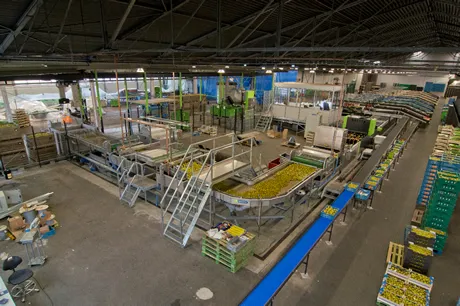
In the past few years FruitMasters has been investing heavily to improve fruit cultivation and processing. An example of this is the introduction of the new sorting line in the pear packing station. They also started an experimental garden in 2014, where about 40 different types of cherries are being grown. We spoke to Leonard Kampschoer, the company's Commercial Director on FruitMasters Holland's 20th anniversary.
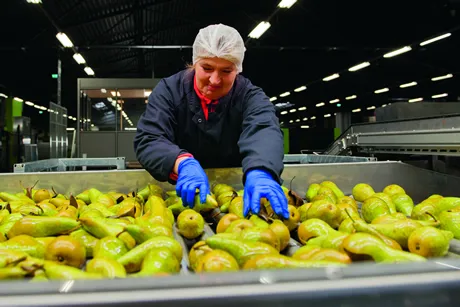
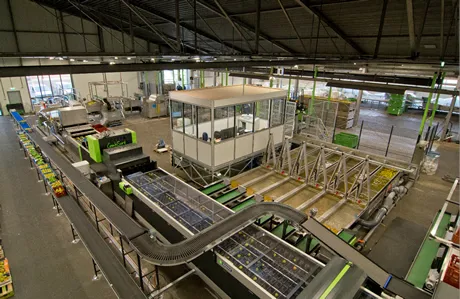
"We have had a sharp increase in our pear volumes, so decided to invest in a Greefa CombiSort sorting machine. We have been very satisfied with the GeoSort that we have been using for three years now in our apple packing station", says Leonard. "The pear sorting machine, which has six tracks, reaches a high capacity by using minimal internal transport. It includes an underwater filler and quality control of both external (iQS) and internal (iFA) fruit quality. This has resulted in our production increasing to 40 million kg."
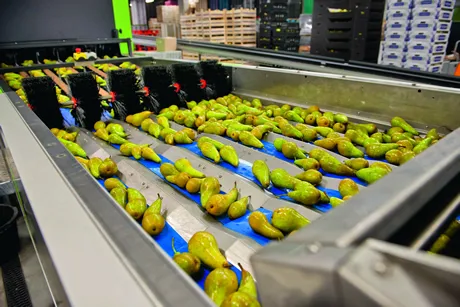
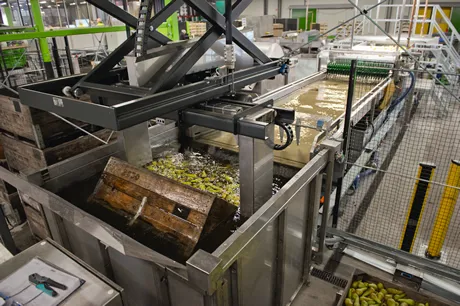
"With this sorting machine, we are more flexible in our response to market demands. For example, in the sorting process, we have, at the moment, the option of direct packing or pre-sorting of the pears, or both. In the case of pre-sorting, the pears are first stored in bulk boxes to be packed according to client specifications at a later stage", says Leonard.
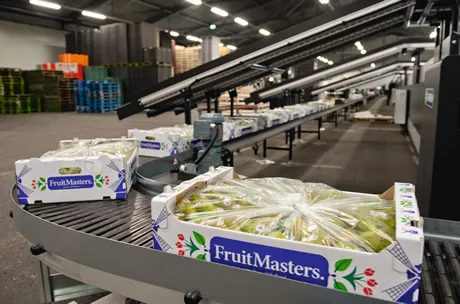
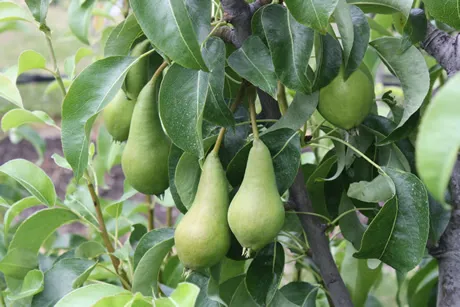
The new crop of Migo pears
Experimental garden
A stone's throw from the auction house, FruitMasters has also invested in the cultivation techniques of the future of its 425 affiliated growers. "To ensure the highest possible yield, we want to be involved in the whole fruit supply chain. We have, therefore, invited our clients from all over the world to come and have a look at our experimental garden and our new varieties", says Leonard. "It also offers us the opportunity to try out new techniques and varieties on our own, independently from all the commercially available cultivation advice."
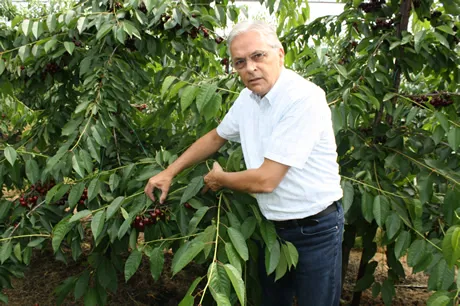
Leonard shows off the cherry crop
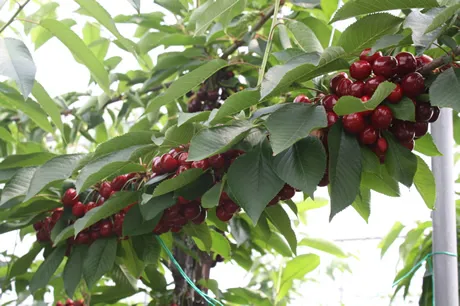
One example of this is the 40 cherry varieties that have been planted. There are many reasons for planting cherries. "Each year, our cherry turnover increase by 10-15%. This includes growers and area. In addition, about 89% of our area is covered. There are more and more cherry farmers. It is also an interesting type of farming in fiscal terms since, in contrast to hard fruit, you realise your profits directly after harvesting. Larger cherries are also more lucrative. The local market is, by far, the most important for cherries, but we send them as far as Asia", says the Commercial Director.
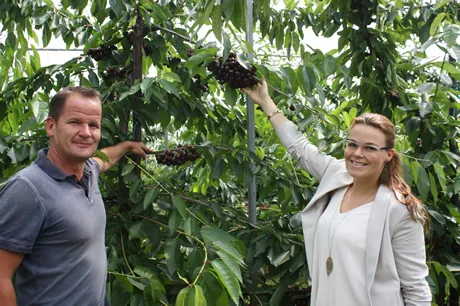
Matthijs, who works in the experimental garden and Shari Pieneman from marketing
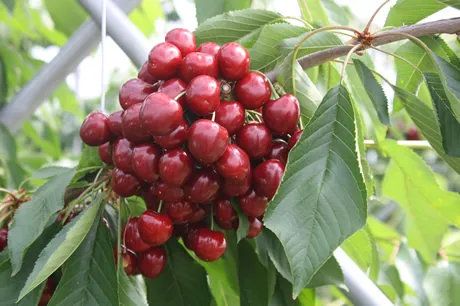
"Kordia and Regina have been strong varieties that have been available for years. We are, however, looking for more varieties that, at the least, have the same quality in order to lengthen the window. The trees we planted in the experimental garden in 2014 are now going into full production. We already have three or four varieties, which can be a good addition to the cherry range, commercially available", says Leonard.
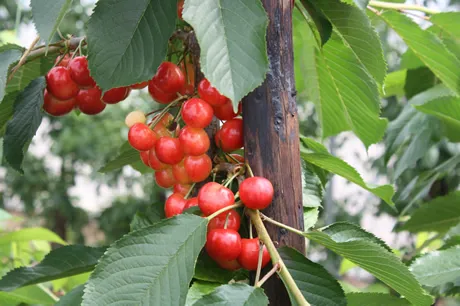
Bicolour varieties
He is not expecting a club concept for cherries on the market. "In comparison to the United States, Chile and Canada, we are still a very limited player. Fortunately, we see that the supermarkets are increasingly focused on having better cherry varieties."
For more information:
Fruitmasters
Leonard Kampschoer
lhm.kampschoer@fruitmasters.nl
www.fruitmasters.nl
